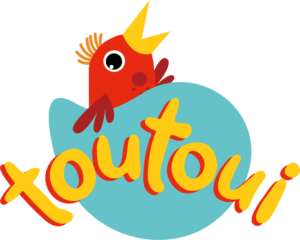
NO. You can choose the best time of day to dedicate to the 25 to 30 minutes necessary for the weekly activites. to ensure continuity, it is best to follow the program consistently so that children can absorb the course material. Ideally, follow the program for at least 8 consecutive weeks.
If you feel that the duration of a week is too long for children, we recommend dividing the week in two. You can do 4 activities on one day and the rest of the activities on another day, making sure to always end with a relaxation session.
Yes. We recommend you follow the order of lessons because each one builds upon learning and material from previous weeks.
Yes! you can repeat any of the weekly lessons, especially if the children particularly enjoyed the previous week's class.
As many times as you and your children are motivated to do so. It's up to you!
We recommend participants stand or sit in a circle or semi-circle. The screen can be positioned as if it were one of the participants. This allows everyone to see each other as well as the video examples, and it creates a feeling of shared space. A circle also eliminates any hierarchy and reinforces that each individual is an important member of the group.
Yes! Toutoui strongly encourages adults to take part in the learning process to motivate and inspire children's participation.
Your voice and movements stimulate the language and motor control areas in children's brains.
Ideally, participation in this program should be a collective experience. For that reason, it is best done in a group or family setting. However, if you cannot be present, the material is still suitable for children to view unsupervised.
NO. You do not need to have any musical training or special skills. The program was developed by a music teacher and is easy to implement. Just follow Toutoui's instructions and Tumtum's movements.
It is paramount that children be allowed to explore movement freely. Try to emulate the movements as accurately as you can in order to provide a good example, but allow the children to move in a way that comes naturally to each of them.
As an active role model, you will inspire your child/children to join in and move. Enjoy this precious time shared with your child/children.
Remember: there is no right or wrong way to do the activities. Children will adapt and learn according to their level of development and individual capabilities.
Yes! Remember that from the age of 3 months, children learn by imitating others. Even when they seem to be passvively observing, children are mentally rehearsing your motions, so make sure to be mindful of your attitude and take care to model the requirements of each activity well. It is always worthwhile to share music and movement with young children even if they are not yet able to perform the movements of a particular activity themselves.
No. There are no evaluations or milestones to reach.
We focus on concepts which have a profound effect on the development of young children, but our approach is always playful. Our activites promote maturation while children have fun and take pleasure in learning. The more children enjoy themselves, the better and faster they learn!
Our philsophy is to to offer a musical experience to children. Our goal is to give them tools for learning that will serve them throughout childhood and beyond.
Each child is as unique as their developmental process. Learning is a never-ending journey, not a destination in and of itself. You may notice improvements in children's musicality, language skills, and coordination during the course of the program, but we cannot guarantee the acquistion of prescise skills at a meausrable level. Our musical experience offers a multitude of benefits for the participants, but they are not quantifiable.
This program is not intended to produce specific levels of achievement, but rather to promote a love of learning and an envirnonment which encourages individual expression and exploration. Our activities allow children to learn in different and complementary ways. In short, they are learning to learn.
They are a guideline for the group leader(s) which indicate the minimum suggested age for particpants (eg. 1+ year, 2+ years, 3+ years), but each child develops at a different rate and this can be taken into account.
Our program is designed for children up to 6 years old. Nonetheless, certain activities require a more advanced level of development to be successfully executed, and the guidelins reflect that. For example, activities which challenge more advanced coordination and language skills are recommended for children aged 3 and up.
Yes. Activites designed for older children can be appropriate for younger ones as long as an adult is present to encourage and guide them during the activity. They may not be able to successfully execute the movements, or they may not move at all, but they will still benefit from observational learning. You can communicate your enthousiasm for movement and passion for music through your presence and attitude.
Where appropriate, we offer hints and suggestions for ways to succesfully lead certain activities for younger children.
Yes. Activites marked 1+ years are appropriate for children of all ages. They can still provide developmental benefits as children improve their musicality and coordination.
If you are not completely satisfied with the program, you may contact us to request a partial refund up to 15 days after the date of purchase.
NB. — You must not access any content or lessons beyond week 1 of the program before requesting a refund. By viewing the second week of lessons, you are indicating your tacit satisfaction with the content, and forfeting the opportunity to request a refund.